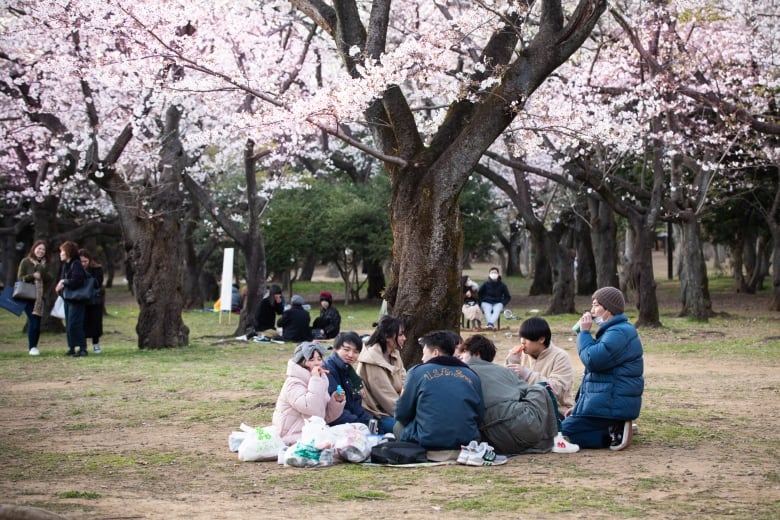If Japan seems complacent about the threat of coronavirus in a world that’s been crippled by it, that’s partly because the number of infections here has been relatively low. But that could change, writes Saša Petricic.

They stand curb-side, shoulder to shoulder, breathing down each other’s necks, waiting for the light to change.
It’s rush hour at Tokyo’s bustling Shibuya crossing earlier this week. As workers head home and young people gather for the evening, there’s plenty of socializing and little social distancing.
In fact, except for a few extra masked faces, closed schools and subways that are less crowded than usual, there are few sign of panic or pandemic. Stores and restaurants are mostly open and office hours have been largely maintained.
“That’s Japanese culture,” said financial worker Riku Tanaka with a shrug. “It’s our culture to never take a break from work, no matter what.”
It’s only in the last week that pubs, karaoke bars and pachinko gaming parlours were officially encouraged to close, and police and barbed wire were posted to keep crowds from Japan’s iconic Sakura festival, when the cherry trees blossom and Tokyo turns pink. Parties are common in parks under the flowering branches.
“Move along,” a police officer told groups of gawkers this week. “You can see it next year.”

If Japan seems complacent about the threat of coronavirus in a world that’s been crippled by it, that’s partly because the number of infections here has been relatively low. Japan has had fewer than 3,000 confirmed cases and 80 deaths in a country with 126 million people ― more than three times the population of Canada.
Regional outbreaks in the northern island of Hokkaido, Osaka and elsewhere were given special attention, but declared resolved relatively quickly.
Tokyo numbers rising
Many consider Japan’s tidy streets and personal hygiene as its protective shield.
“Japanese people are quite careful about being clean,” said student Shunpei Kanai on a busy Tokyo street corner. He pointed to frequent hand washing and a culture of cleanliness.

Still, the country is getting nervous.
Tokyo governor Yuriko Koike has declared “high concern,” issuing increasin

